
Different types of THC and What is strongest?
Understanding Different Types of THC and Their Potency
The different types of THC and Strengths.
As you probably know, THC or tetrahydrocannabinol is the main psychoactive substance present in cannabis. Yes, among the more than 100 Phyto cannabinoids identified in this plant, THC is, by far, the one with the greatest presence as a psychotropic component. Although this compound has a series of more than interesting medicinal properties, its medicinal aspect has always been in the shadow of its psychoactive capacity, a capacity that historically has not exactly played in its favor in legislative matters.
However, THC has different types called isomers or analogs; For example, the THC we usually talk about is the isomer called Delta-9 THC, although other similar names may sound familiar to you, such as Delta-8 THC or Delta-10 THC, even THCV or THCP. In this article, we are going to talk about the main types of THC that you can find in your cannabis and see its main characteristics and effects.
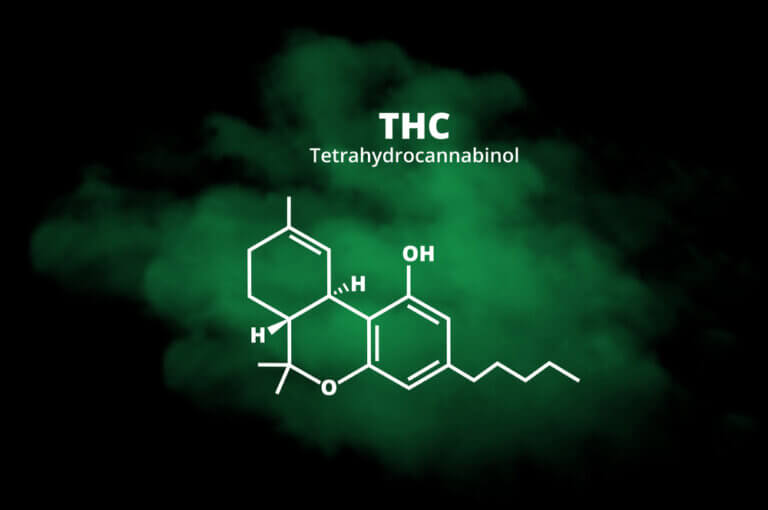
THCA, the acid form of THC
THCA or tetrahydrocannabinol acid is a non-psychoactive cannabinoid that you can find naturally in the fresh marijuana plant. It is the precursor to all forms of THC produced by the plant, turning into THC when heated or in contact with air through a process known as decarboxylation, in which THCA loses a carboxyl group and becomes its "psychoactive version".
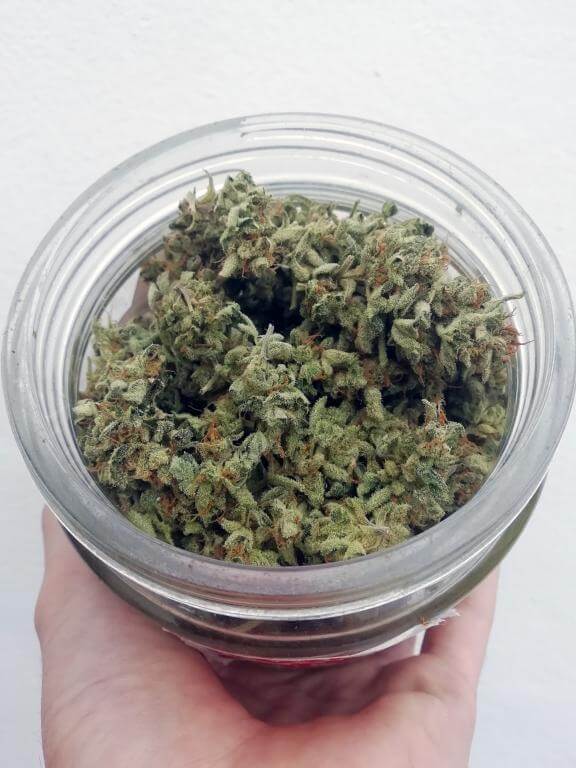
Cannabis decarboxylation
Today we are going to delve into the cannabis decarboxylation process, by which cannabinoids lose their acid form and "activate" many of their properties. This is an essential process when preparing cannabis edibles, so they have the desired effect, and a basic step to make the best recipes.
THCA is believed to have medicinal properties similar to THC, such as relieving pain and inflammation, but it lacks psychoactive effects, which many users find to be a great advantage. Its potential to treat neurodegenerative disorders such as Parkinson's and multiple sclerosis has also been investigated, and it has been used in the treatment of cancer after some studies have suggested that it may have anti-tumor properties. However, due to the lack of research, the therapeutic effects of this substance are not yet fully known.
In short, THCA is a non-psychoactive compound that you can find naturally in fresh cannabis that has medicinal properties similar to THC, but without the psychoactive effects of THC. When decarboxylated (something that happens when drying and smoking the flowers) they become their respective psychoactive versions. However, more research is required to fully understand the functions and effects of this cannabinoid, especially regarding its therapeutic potential.

THC isomers
Delta-9 THC, the main psychoactive cannabinoid in marijuana
Whether we are talking from a medicinal or recreational point of view, varieties with a high THC content are increasingly sought after, and the efforts of many breeders are focused precisely on that, increasing the total content of this cannabinoid in their genetics. But what exactly are we talking about when we say "THC"?
As we have commented, in the cannabis plant no other psychoactive cannabinoid has as much presence as Delta-9 THC, and there are many compounds of this type found today. The exact number is difficult to say as it is constantly changing as research on these compounds progresses, although we can state that more than 110 different cannabinoids have already been identified.
However, this research has also revealed other types of THC that, although they have an obvious affinity with Delta-9, present differences in their structure or chemical composition that, logically, translates into their effects. From now on, if we do not refer to THC, we will refer to this specific isomer, without a doubt the most popular.
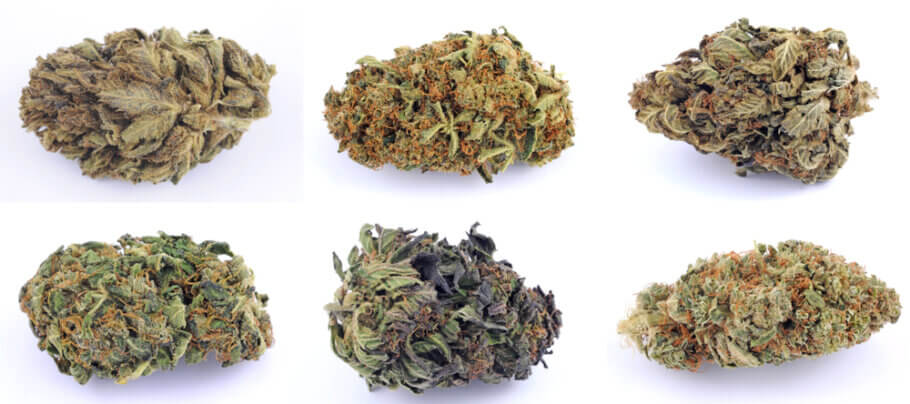
Delta-8 THC, a psychoactive cannabinoid with enormous potential
Delta 8 THC is a psychoactive cannabinoid that is derived from THC (tetrahydrocannabinol). It is a modified form of THC that has become a popular alternative to conventional THC due to its similar therapeutic properties but with a less potent psychoactive effect. This cannabinoid occurs naturally in low concentrations in the marijuana plant, although it can also be produced through a chemical process called isomerization, which can convert some of the compounds found in cannabis into Delta 8 THC.
This compound has been used to treat various conditions including pain, anxiety, nausea, and insomnia, and has been shown to have anti-inflammatory and analgesic properties. Some studies also point to the idea that Delta 8 THC may have a positive effect on memory and learning, although its therapeutic effects will not be known in more detail until further research.
Unlike Delta 9 THC, Delta 8 THC is not considered federally illegal, although some states have specific laws regarding its use. However, the use of Delta 8 THC is still subject to each state's own marijuana regulations.
Thus, this substance is a psychoactive cannabinoid with medicinal properties similar to those of THC, although with a less potent psychoactive effect. In fact, its effect is more powerful than that of Delta 10 THC, being between Delta 10 and Delta 9.
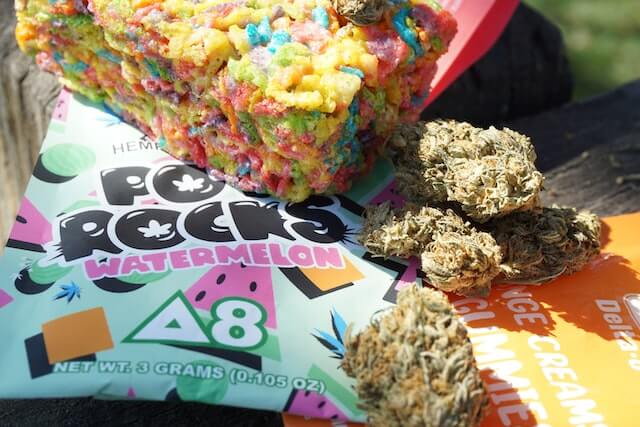
Delta-10 THC, a low-potency compound
Delta 10 THC is a psychoactive cannabinoid that has become a hot item recently. It is a modified form of THC (tetrahydrocannabinol) that can be found naturally and in low concentrations in some varieties of cannabis. Like Delta 8 THC, it can be produced in the laboratory thanks to isomerization.
This compound has a less potent psychoactive effect than Delta 9 THC, being used to treat different conditions such as chronic pain, anxiety, depression, and nausea. Unfortunately, we must again say that the therapeutic effects of Delta 10 THC are not fully known yet.
In the US, the use of this compound is still subject to marijuana regulations in each state, since its use and sale have been prohibited in some. In addition, such use is in a gray area legally speaking, since this substance is not specifically mentioned in the federal laws of the United States.
In short, Delta 10 THC is a psychoactive cannabinoid subject to state and federal regulations with therapeutic properties similar to THC, but with the least potent psychoactive effect we've seen so far. Undoubtedly, as research on this interesting compound progresses, we will know more about its effects and benefits.
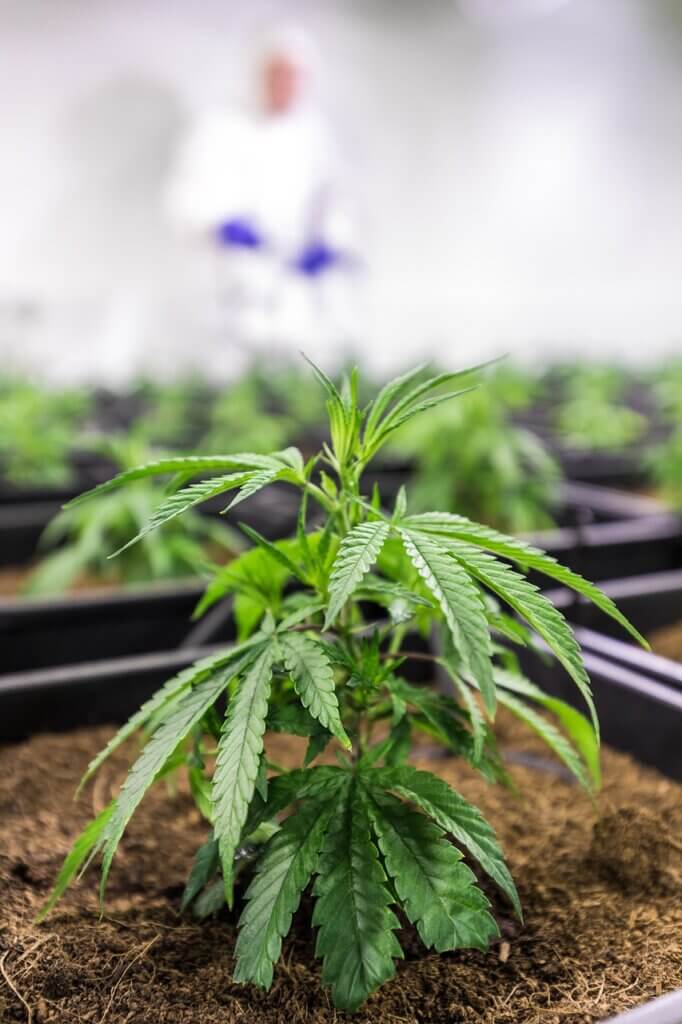
THC analogs
THCV
Also found naturally in some cannabis plants, THCV (tetrahydrocannabivarin) is a psychoactive cannabinoid similar to THC (tetrahydrocannabinol) in its chemical structure, but with slightly different properties and effects.
THCV has a less potent psychoactive effect than THC and its duration of action is shorter. Some studies suggest that THCV may act as an appetite suppressant, something that many stoners will love, and its potential to treat diabetes and metabolic syndrome has also been investigated. THCV has also been shown to have anti-inflammatory and pain-relieving properties.
When it comes to psychoactive effects, THCV can act as an "antagonist" to THC, meaning it can reduce the psychoactive effects of THC. Some people have reported that THCV's effect is energizing rather than relaxing, as is often the case with THC.
However, again due to insufficient research, we do not yet fully understand the therapeutic and psychoactive effects of THCV. It is important to mention that its presence and effects in different types of marijuana can vary and its use is subject to state and federal regulations.
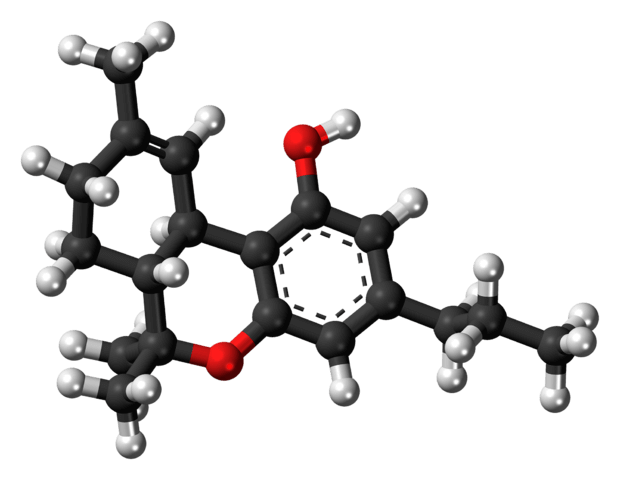
THCP
THCP or Tetrahydrocannabiphorol is a psychoactive cannabinoid that, again, occurs naturally in some marijuana plants. Although it is very similar to THC (tetrahydrocannabinol) in terms of its chemical structure, it has slightly different properties and effects.
THCP has been shown to have a higher affinity for the CB1 receptors in the human body, which means that it has a more potent psychoactive effect than THC. Although some animal studies have been conducted, not much research has been done on THCP in humans, so its therapeutic and psychoactive effects are almost completely unknown.
As with the rest of the cannabinoids, the amount found can vary greatly depending on the variety or plant grown, as well as other factors. On a legal level, in the US its use is subject to state and federal regulations. In addition, the use of this compound may carry risks that clinical research has yet to clarify.
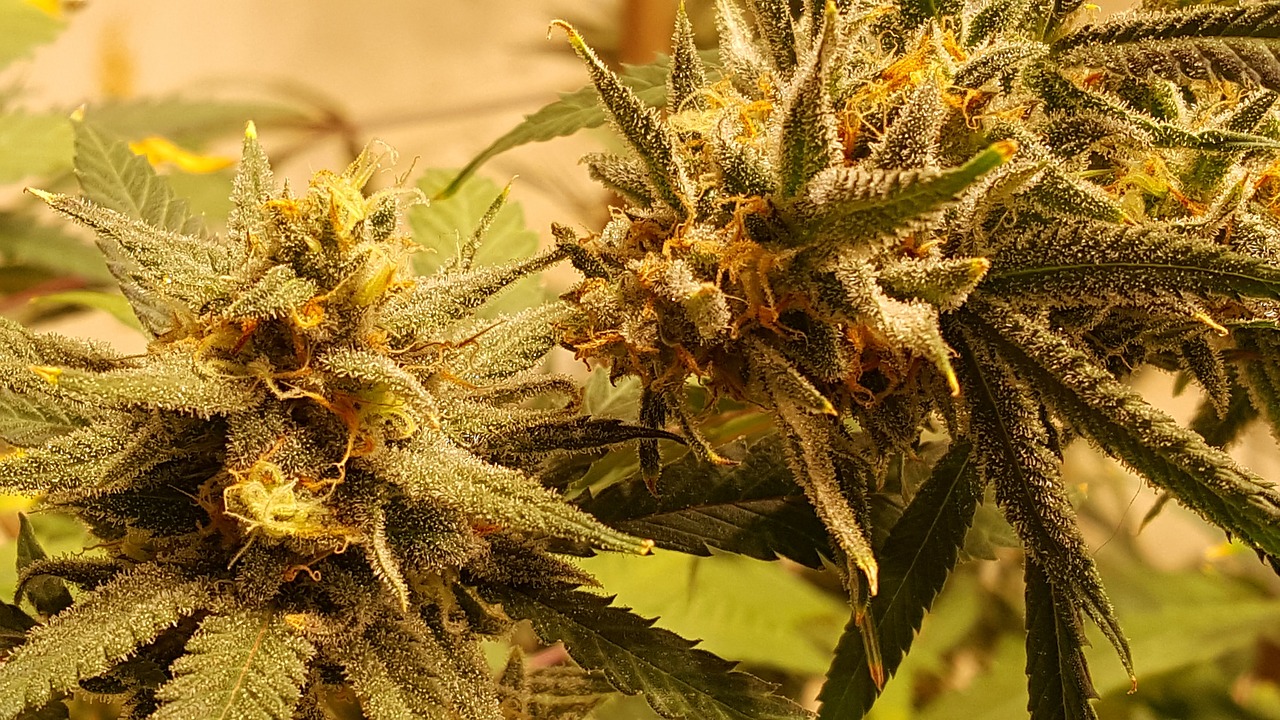
THCP, a cannabinoid up to 30 times more potent than THC
In this post we bring you news of THCP, a recently discovered cannabinoid with enormous medicinal potential showing up to 30 times greater affinity with the CB1 cannabinoid receptor than THC.
In conclusion, THC is the main psychoactive compound found in marijuana. However, there are different types of THC, called isomers or analogs, which vary slightly in their composition or chemical structure, which translates into their potency and effects. THCV, for example, is known for its ability to reduce appetite and increase concentration, while THCP has been shown to be far more potent than "regular" THC.
We hope that scientific research on these interesting compounds continues, it will be the best way to take advantage of all the potential they offer us. Undoubtedly, at the medicinal level, isomers with low psychoactive potency such as Delta 10 THC offer a whole world of possibilities for patients who need to take advantage of the medicinal effect of THC but who cannot tolerate its psychoactive action.
We will see what the future holds for us!
-----------------------------------------------------
References:
- Taming THC: potential cannabis synergy and phytocannabinoid-terpenoid entourage effects, Ethan B Russo
- Δ9-Tetrahydrocannabivarin (THCV): a commentary on potential therapeutic benefit for the management of obesity and diabetes, Amos Abioye, Oladapo Ayodele, Aleksandra Marinkovic, Risha Patidar, Adeola Akinwekomi, Adekunle Sanyaolu
- A novel phytocannabinoid isolated from Cannabis sativa L. with an in vivo cannabimimetic activity higher than Δ9-tetrahydrocannabinol: Δ9-Tetrahydrocannabiphorol, Cinzia Citti, Pasquale Linciano, Fabiana Russo, Livio Luongo, Monica Iannotta, Sabatino Maione, Aldo Laganà, Anna Laura Capriotti, Flavio Forni, Maria Angela Vandelli, Giuseppe Gigli, Giuseppe Cannazza
- Decarboxylation of Tetrahydrocannabinolic acid (THCA) to active THC, Kerstin Iffland, Michael Carus, Franjo Grotenhermen
Tetrahydrocannabinol (THC) is known for its psychoactive effects and its contribution to the high sensation that cannabis consumers experience. But there's more to THC than just that. It comes in different types, which differ in their strengths, effects, and benefits. In this post, we'll explore these different types of THC, understand their individual characteristics and identify which among them is considered the strongest.
In the cannabis plant, the non-psychoactive cannabinoid called THCA (tetrahydrocannabinolic acid) is the most abundant. It's only when heat is applied - through a process called decarboxylation - that THCA is converted to THC. There are several types of THC that have been discovered, including Delta-9 THC, Delta-8 THC, and THC-O Acetate. These three types of THC have different strengths, with Delta-9 THC being the strongest and most commonly recognized.
Delta-9 THC, found primarily in the cannabis plant, is the most common type of THC. It’s also the most powerful, providing potent psychoactive effects. On the other hand, Delta-8 THC, commonly derived through extraction and processing, offers a more relaxed, less psychoactive experience. Lastly, THC-O Acetate, a synthetic variant, is reported to be two to three times more potent than Delta-9 THC, but its legality and safety are still widely debated.
Understanding these types of THC can not only enhance one's experience with cannabis but also help make informed decisions. Each type of THC offers a unique range of effects and benefits, from relaxation and mood enhancement to potential therapeutic applications.
